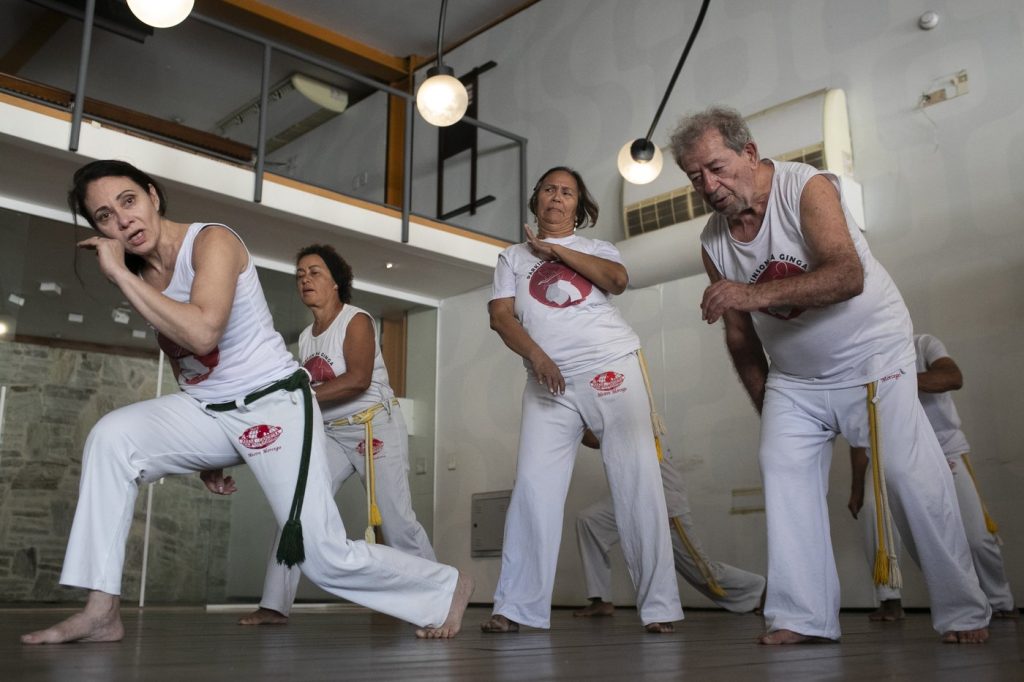RIO DE JANEIRO (AP) — Nilma Teles de Freitas, an 80-year-old retired teacher from Brazil, has been living with Parkinson's disease for over a decade. She previously struggled with frequent falls until she began attending a specially designed capoeira class for individuals with this neurodegenerative illness in downtown Rio de Janeiro.
Capoeira, a blend of martial arts and dance, originated within enslaved communities in Brazil, where millions of Africans were brought during the transatlantic slave trade that began in the 16th century. This movement practice combines elements of ritual, exercise, spirituality, and music, contributing to its status as an Intangible Cultural Heritage recognized by UNESCO in 2014.
Freitas shared her experience, saying, "Capoeira gives me freedom to work on my body. What I can do, what I can’t do. So I can have balance and a more comfortable life." Initiated in 2018 by physical therapist Rosimeire Peixoto, who has over a decade of capoeira practice herself, the project aims to alleviate some symptoms of Parkinson's disease through movement.
Parkinson's disease manifests in various ways, including balance difficulties, tremors, slowness of movement, and stooped posture. Additionally, patients often face anxiety, depression, and other challenges. Peixoto's concept for integrating capoeira into therapeutic practices arose after she read an article about how using both hands on a cell phone could stimulate both hemispheres of the brain. As a physiotherapist, she recognized a gap in motivating her neurological patients with engaging exercises.
The project is aptly titled "Parkinson na ginga," or "Parkinson's in the swing," referencing the fluid and rhythmic basic step of capoeira. Peixoto conducts classes twice a week at the Progress Foundry, a cultural center in downtown Rio de Janeiro, located near a historic 18th-century aqueduct surrounded by palm trees. She claims that capoeira enhances balance, coordination, and strength while the accompanying music helps to relax tense bodies.
During classes, Peixoto actively engages with the students, offering gentle support to improve their balance, repeating demonstrations, and providing encouragement. Participants like Antônio de Azevedo, diagnosed with Parkinson's a few years ago, express that capoeira has significantly enhanced their lives. Azevedo remarked on how he struggled to stand before joining the classes. "It's the best thing that's ever happened to me," he shared, participating in the class with around ten others, all living with Parkinson's.
To make the classes enjoyable and promote social interaction, Peixoto often incorporates group samba dances at the end and brings cake to share. Freitas appreciates the camaraderie developed among class members. "We are there for one another," she emphasized, noting the importance of friendship in providing strength. Reflecting on her diagnosis, she recalled the fear and tears she experienced after leaving the doctor's office. However, she found a renewed sense of joy and connection through capoeira, saying, "Today I’m smiling. I’m managing to live. I’m managing to interact with other people. I’m managing to be happy."










